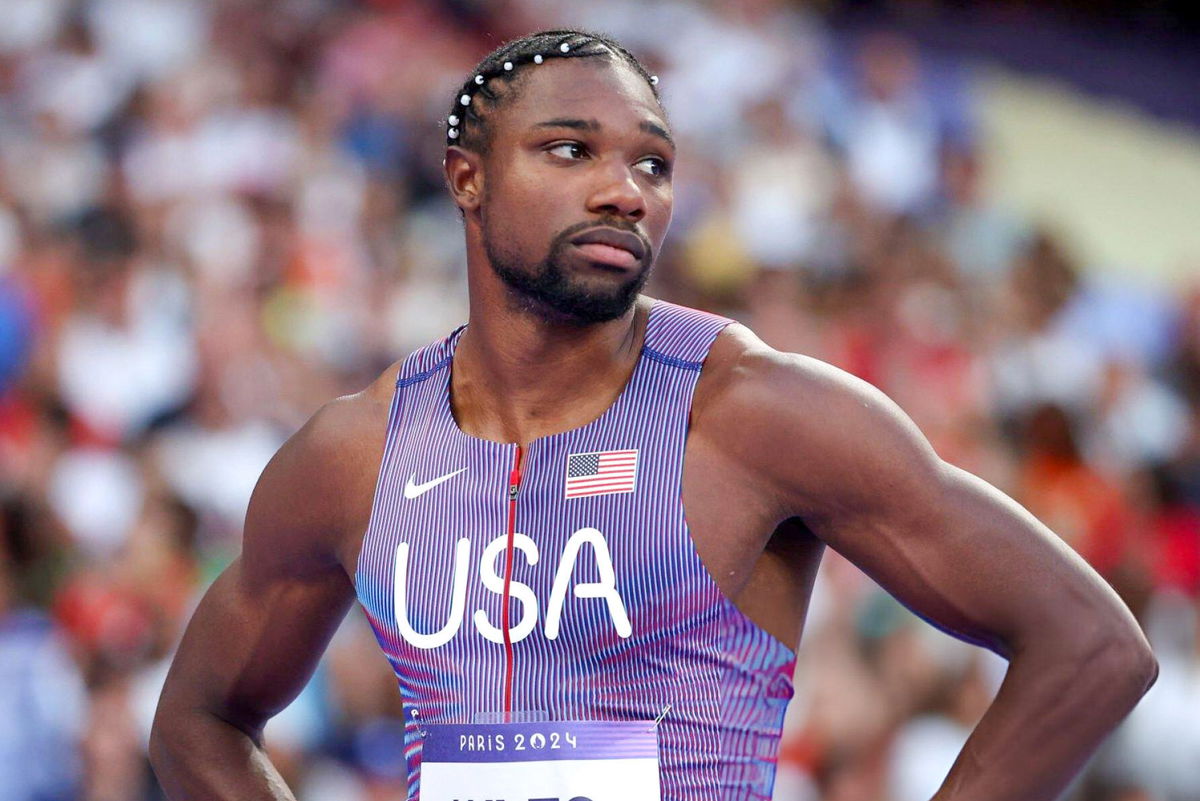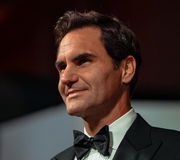

Noah Lyles isn’t just the fastest man on the track; he’s also a source of inspiration for those who need it most. While many see him as a gold medalist in the 100m at the Olympics, some have labeled him “selfish” and called him outspoken too. But there’s so much more to him than that—his soft side. A great example is his recent visit to Children’s National Hospital in Washington, D.C. Instead of racing against time, he took a moment to connect with young patients, sharing laughs and offering encouragement that truly brightened their day.
Watch What’s Trending Now!
You might wonder why Noah Lyles feels such a strong connection to these kids. Well, he knows all this what these little kids are going through. Having faced challenges himself, including asthma, allergies, dyslexia, ADD, anxiety, and depression, he truly understands what they’re going through. Many children might feel that having these conditions means the end of their dreams, especially when it comes to being a track and field star. However, during a lively Q&A, Lyles shared a more uplifting perspective, which he shared in his Instagram story, which was initially shared by Fox DC.
He reflected, “I remember those times when I wanted to play sports, and the answer was, ‘Well, let’s just make sure you’re healthy first.’ It was agonizing to hear every time, and I wanted to make sure that kids who had a life like mine in the beginning or even worse knew that it’s not always gonna be like this.”
ADVERTISEMENT
Noah Lyles faced challenges, with asthma from the early age of 3. He found it difficult to enjoy things like eating and playing due to a persistent cough that troubled him continually. Once he turned 5 years old with the help of his mother, he received the diagnosis of reactive airway disease after visits to the emergency room due to breathing issues. Doctors later confirmed that asthma was indeed the issue.
To cope with his health issue, he went through nebulizer therapy and had his tonsils and adenoids taken out when he was 7 years old to improve his performance in sports activity initiation. But at the high school level, he found it tough to bounce back post runs and often required days to regain strength after long races; when Bishop inquired about his aspirations, in life his response was quite simple. “To run really fast.” And here he is now.
ADVERTISEMENT

ADVERTISEMENT
However, Noah Lyles’s mother also added in an interview, “All of us have challenges that we have to overcome, and I’m so proud of him and his transparency in sharing that he has ADD, dyslexia, clinical depression, asthma, and allergies because it shows that you don’t have to be defined by your diagnoses.”
Lyles then also chimed in, adding, “No matter your difficulty, life does not determine who you are; you determine who you are.” But this event wasn’t just about emotions; Lyles also filled it with smiles.
ADVERTISEMENT
Noah Lyles turns setbacks into comebacks for himself and others
At the event, Lyles was full of energy and interacted with the children through games and signing autographs, which left a smile on everyone’s face in every room he visited. Jordan Torres, a patient at the hospital, perfectly captured the experience, saying, “It’s very inspirational, especially hearing about his journey at the Olympics and everything leading up to here.” While Noah Lyles’s success is impressive, it’s important to recognize the vital role his mom played in his life, supporting him through tough times like his tonsillectomy and helping him overcome those challenges.
Noah Lyles overcame asthma through a tonsillectomy and improved his diet with the support of his mother. But then he encountered another challenge: dyslexia. But he didn’t let that stop him. However, then in 2021 again, tables turned as when he grappled with depression, a struggle that came to light during the Tokyo Olympics. Noah revealed his struggles with health after winning a bronze medal in the men’s 200-meter event at the Tokyo Olympics by discussing how the stresses of his career impacted him and sharing the effects of depression on his life.
Top Stories
Greg Biffle’s $4M Worth Prized Possession Still Without a Buyer Leaves NASCAR Fans Heartbroken

LIV Golf Braces for Another Possible Exit in Wake of Brooks Koepka Departure

Sean Payton Announces Retirement Plans as Broncos HC Demands Improvement From Bo Nix & Co. Before Playoffs

Biff Poggi All But Confirms Bryce Underwood’s Michigan Future After Announcing His Own Departure

Roger Federer Draws Criticism from Swiss Government Chief for Tourism Boom in Country

Amanda Balionis Confirms New Relationship Ending Months of Rumors

Noah Lyles’ battle with depression was rooted in the upheaval caused by COVID-19, which changed everyone’s life. Like many athletes, he found the Olympics to be a cathartic experience after a tumultuous 18 months marked by the pandemic and racial unrest. He emphasized the importance of seeking help, saying, “It’s OK to not feel good, and you can talk to somebody professionally.” His openness about his struggles highlights the need for mental health support, especially during challenging times.
ADVERTISEMENT
ADVERTISEMENT
ADVERTISEMENT
ADVERTISEMENT

